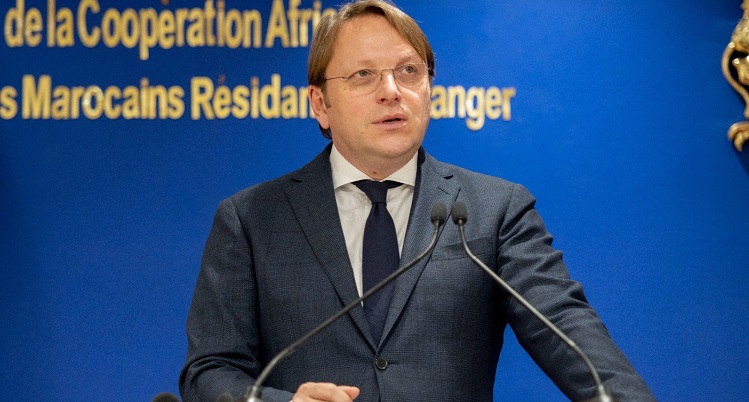EU Commissioner welcomes Georgian ruling party’s recall of foreign transparency bill

Oliver Varhelyi, the European Union Commissioner for Neighbourhood and Enlargement Policy, has welcomed the withdrawal of a Georgian bill on transparency of foreign influence. Photo: Oliver Varhelyi’s Twitter
Oliver Varhelyi, the European Union Commissioner for Neighbourhood and Enlargement Policy, on Thursday welcomed the decision of the ruling Georgian Dream party to withdraw the controversial bill on transparency of foreign influence.
In his social media post Varhelyi said Georgia could “count on” the bloc’s support on its European integration path, ahead of the forthcoming decision later this year whether to grant the country the European Union membership candidate status.
The comment came after the European Union representation in Georgia also welcomed the recall of the draft law and encouraged “all political leaders in Georgia” to resume pro-EU reforms, in an “inclusive and constructive way and in line with the 12 priorities for Georgia”, which were outlined last year for the country in its aspirations for the candidate status.
I welcome the decision of the ruling party withdrawing the controversial NGO law.#Georgia ???????? can continue to count on our support on its EU ???????? path. https://t.co/0R0CSEmgLL
— Oliver Varhelyi (@OliverVarhelyi) March 9, 2023
Georgian Dream on Thursday said it was “unconditionally” withdrawing the bill that was strongly criticised by domestic opposition, civil sector and diplomatic representations in the country, citing the interest of maintaining domestic “tranquillity”, the country’s development and its European integration aspirations as factors behind the decision.
The draft law, which involved registration of non-commercial legal entities and media outlets in the country as “agents of foreign influence” if they derive more than 20 percent of their funding from abroad, passed its first hearing at the Parliament earlier this week, with its discussions accompanied by heated exchanges and clashes between MPs, as well as public rallies outside the legislative body.
Its proposal was met with criticism by domestic actors and Georgia’s international partners, with Josep Borrell, the European Union High Representative for Foreign Affairs and Security Policy, on Tuesday saying it was “incompatible” with EU values and standards.
The United Nations Office in Georgia said adoption of the bill would “risk impeding the work of civil society and media and the essential contributions they make to Georgian democracy”.
The withdrawal of the bill means it is set to be voted on and rejected in its second reading in the Parliament. The ruling party has not yet announced the date for the vote.
 Tweet
Tweet  Share
Share